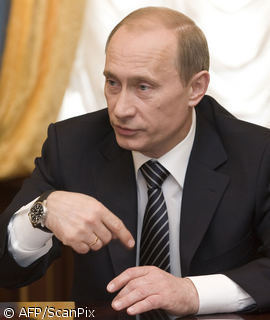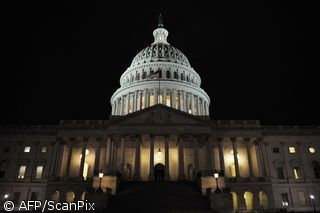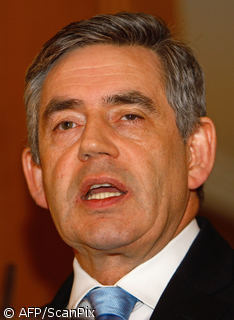The central bank governor is warning that the euro is not the cure for all Poland's ills
Published:
19 January 2005 y., Wednesday
The central bank governor Leszek Balcerowicz is warning that the euro is not the cure for all Poland's ills.
Leszek Balcerowicz believes the government should focus on reforms to yield long-term economic growth, rather than rushing to join the single currency.
"I never said that Poland should enter [the eurozone] at any cost. I said the best strategy is to fulfill conditions for euro entry in a rapid and sustained way," said Balcerowicz, while attending a meeting of central bank governors last week. "The process of EU enlargement was conducive to reforms. The idea of euro entry should be a similar incentive."
Balcerowicz has frequently said that eurozone entry is a political, rather than an economic issue, and that taxes and spending are currently too high for single-currency membership. He also said that tougher reforms were necessary to free Poland from the shackles of long-term high unemployment. In the 1990s, his economic treatments helped Poland recover from the collapse of communism.
"It will pay for Poland to undergo fiscal consolidation," he said. "Unemployment in Poland is not due to over-excessive market-oriented reforms. All of the reasons are structural. There has been some labor market liberalization but I think we need much more decisive action."
Despite his comments, the Civic Platform (PO) party, which is expected to win the next general election, says eurozone entry by 2009 will be a key objective for the party. "Our government will have the strategic goal of adopting the euro by 2008 or 2009. We will do everything to make sure it happens," said Zbigniew Chlebowski, deputy head of the Platform's parliamentary group.
Chlebowski also hinted at the future government's economic policy plans, saying major reform initiatives-such as its flat-tax proposals-would be launched at the start of 2007, not in 2006 as earlier signaled. He also said that limiting the budget deficit in 2006 would be difficult because of the outgoing government's spending promises but that fiscal policy would tighten from 2007.
Šaltinis:
wbj.pl
Copying, publishing, announcing any information from the News.lt portal without written permission of News.lt editorial office is prohibited.
The most popular articles
 Vladimir Putin appeared on live television and radio for his annual question-and answer session with the public.
more »
Vladimir Putin appeared on live television and radio for his annual question-and answer session with the public.
more »
 EUFISERV Payments announced today that the separation of the EUFISERV ATM Scheme from EUFISERV's former processing business is now complete, and is in line with the SEPA requirements of the European Central Bank and the European Commission.
more »
EUFISERV Payments announced today that the separation of the EUFISERV ATM Scheme from EUFISERV's former processing business is now complete, and is in line with the SEPA requirements of the European Central Bank and the European Commission.
more »
 600,000 Mexicans work in the auto and auto parts industries, and U.S. automakers run around a dozen plants.
more »
600,000 Mexicans work in the auto and auto parts industries, and U.S. automakers run around a dozen plants.
more »
 The President of the European Commission Jose Barroso says some British politicians are considering signing up to the euro
more »
The President of the European Commission Jose Barroso says some British politicians are considering signing up to the euro
more »
 It's official. The U.S. economy is in a recession.
more »
It's official. The U.S. economy is in a recession.
more »
 The crisis that started in the US over a year ago has sent shock waves around the globe.
more »
The crisis that started in the US over a year ago has sent shock waves around the globe.
more »
 Offering a coordinated response to the EU’s deepening economic crisis, the Commission is proposing €200bn in measures to boost purchasing power and generate growth and jobs.
more »
Offering a coordinated response to the EU’s deepening economic crisis, the Commission is proposing €200bn in measures to boost purchasing power and generate growth and jobs.
more »
 The two men charged with keeping Britain's economy afloat moved on Monday to ward off a deepening recession.
more »
The two men charged with keeping Britain's economy afloat moved on Monday to ward off a deepening recession.
more »
 European citizens are getting older and greyer. By 2050 it is estimated that the average age in the European Union will be 49, up from 39 now.
more »
European citizens are getting older and greyer. By 2050 it is estimated that the average age in the European Union will be 49, up from 39 now.
more »
 Addressing U.S citizens, Barack Obama spoke of plans to revive the economy.
more »
Addressing U.S citizens, Barack Obama spoke of plans to revive the economy.
more »